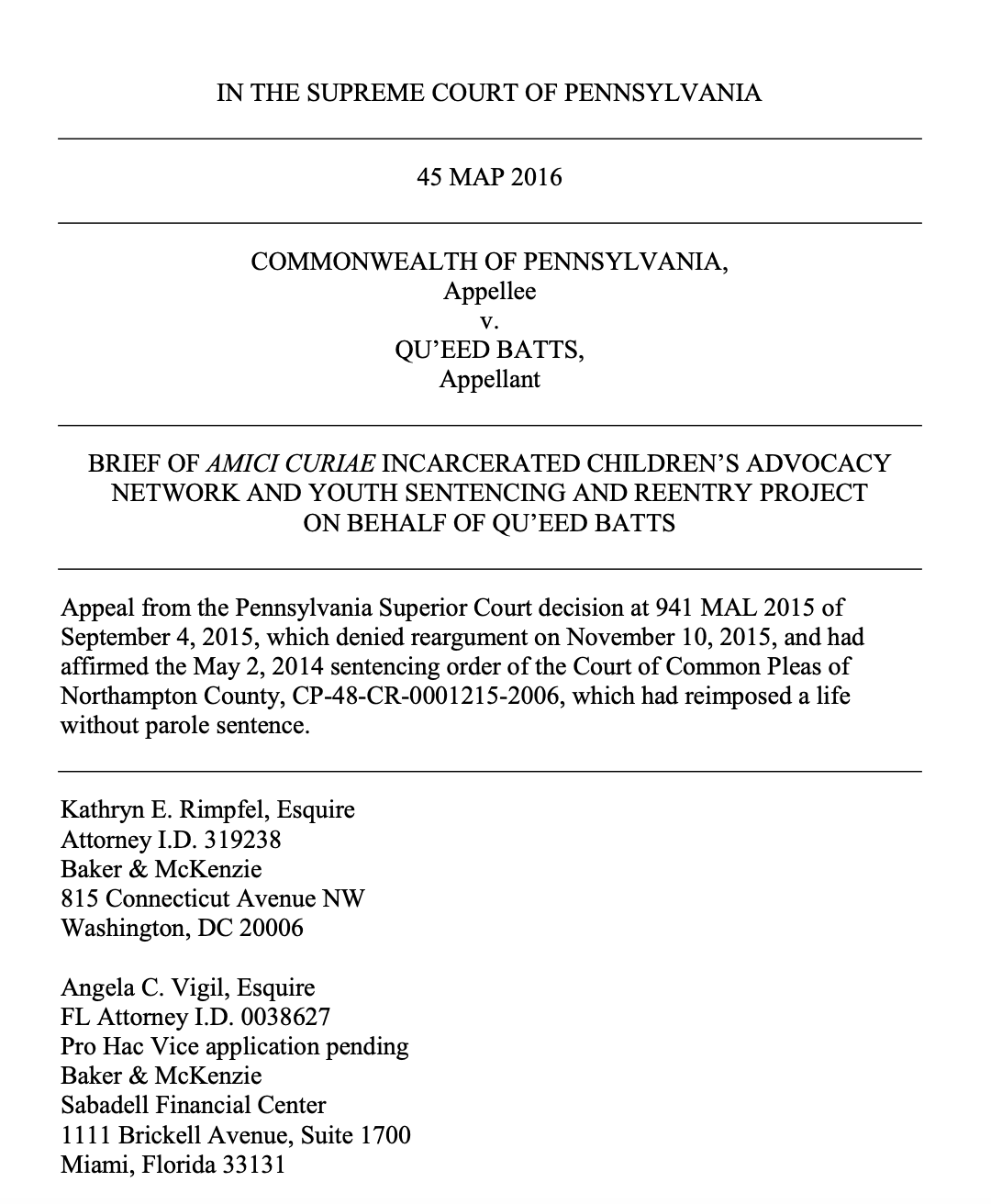
Summary of Argument
Miller v. Alabama and Montgomery v. Louisiana mandate a presumption against life without parole for crimes committed while under the age of 18, because all children are capable of growth and rehabilitation. Amici submit this brief in support of Qu’eed Batts to share the stories of formerly incarcerated youth who have been released from prison and are now productive citizens in their communities. These real-life examples demonstrate the unique rehabilitative potential of youthful offenders who embody the Supreme Court of the United States’ pronouncement that “children are constitutionally different from adults for purposes of sentencing” because of their “diminished culpability and greater prospects for reform.” Miller v. Alabama, 132 S. Ct. 2455, 2464 (2012).
Like Qu’eed Batts and petitioners in related cases, the people whose stories are told in this brief were convicted of homicide crimes as children. Edwin Desamour, Sean Taylor, Xavier McElrath-Bey, and Joseph Farias could have spent their entire lives in prison. Instead, they matured, bettered themselves, and are now contributing members of their communities. Their stories of reform and redemption are not exceptions. There are juvenile "lifers" in Pennsylvania and around the country just like these men, including Qu’eed Batts, who were incarcerated at a young age and who are capable of rehabilitation—no matter how immature, troubled, or violent they may once have been. They are living proof that “children who commit even heinous crimes are capable of change.” Montgomery v. Louisiana, 136 S. Ct. 718, 736 (2016).